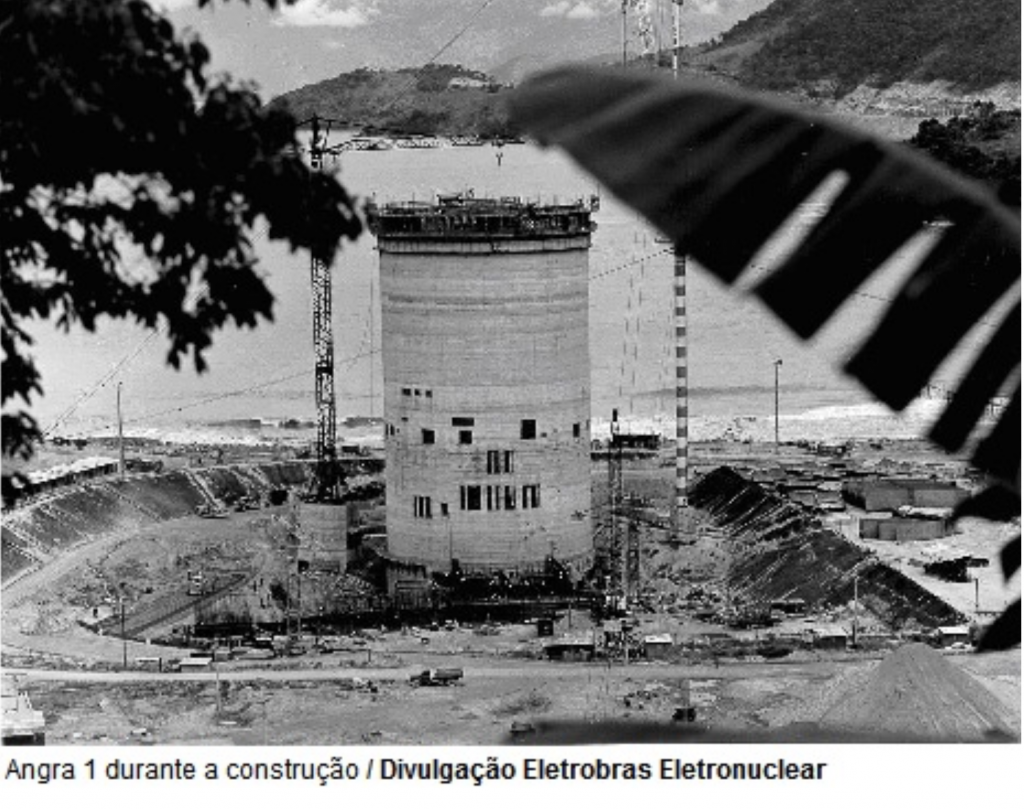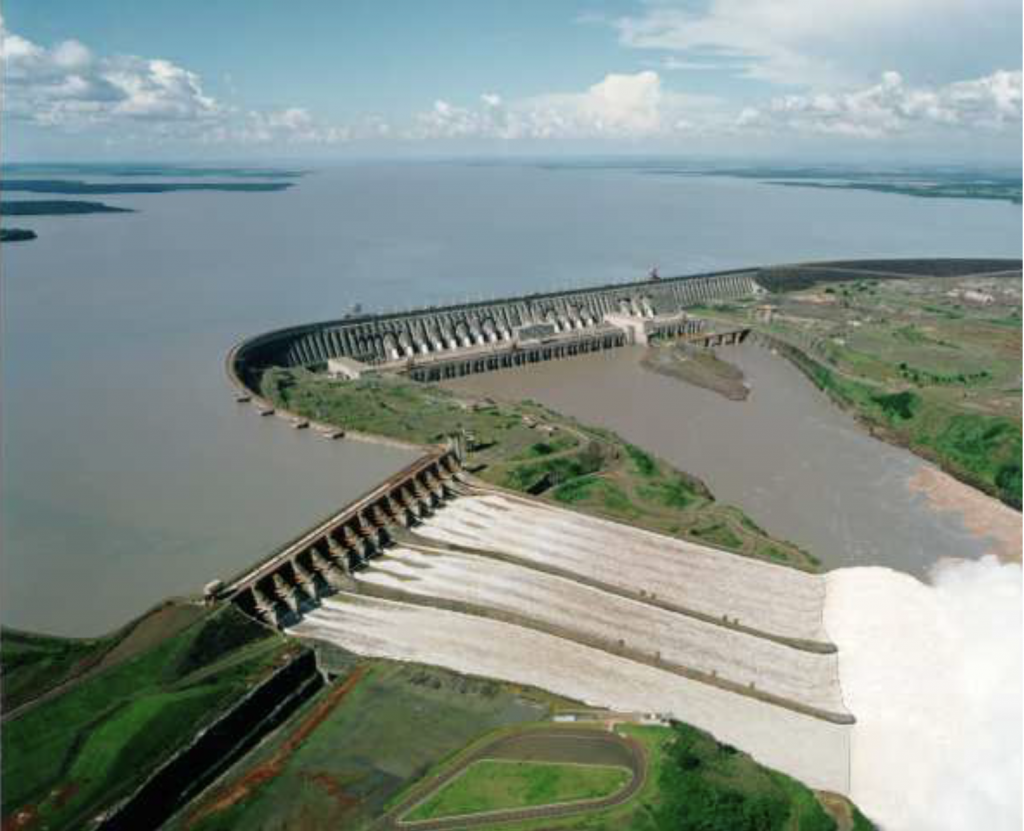

Angra 1 nuclear plant during construction, and the Itaipu Dam on the Brazil-Paraguay border
Brazil’s military came to power in 1964 with overtly pro-U.S. positions, and with American support for the overthrow of Goulart. Eager to elevate “national greatness” and Brazil’s international standing, the regime moved to participate in the U.S.-backed international intervention in the Dominican Republic with the authorization of the Organization of American States . A marked shift from Brazil’s longstanding foreign policy of non intervention, it was seen by the regime as a relatively costless way of reciprocating for Washington’s support of the 1964 coup d’état. However, the relationship between the two countries was not entirely harmonious, and leftwing Brazilian scholars criticized both the United States’ and Brazil’s role in Latin America. Among the most forceful critiques was offered by Rui Marini, who categorized Brazil as a “subimperialist” power, acting as a surrogate for United States interests in continental relations and acting independently in pursuit of its own foreign policy objectives.
While the Dominican intervention was a clear example of Brazil acting as an extension of American imperial power in Latin America, in other instances military leaders pursued agendas that even angered U.S. officials. For example, their quest to obtain nuclear technology from West Germany sent Americans scrambling to stop the deal and find ways around it. Kissinger notoriously sought not to disturb relations with Brasília by avoiding overly criticizing Brazil in a time of increasing nonproliferation agreements. Additionally, Brazil strengthened political and/or economic relations with countries, such as Paraguay, Angola, Libya, even as the United States maintained icy relations with them. In doing so, the Ministry of Foreign Affairs (Itamaraty) was seeking to pursue Brazilian economic interests that were independent from the United States, even as Brasília remained dependent on its American alliances.
Readings:
Ralph G. Santos, “Brazilian Foreign Policy and the Dominican Crisis: The Impact of History and Events” English
Daniel Zirker, “Brazilian Foreign Policy and Subimperialism During the Political Transition of the 1980s: a Review and Reapplication of Marini’s Theory” | English
Matias Spektor and Carlo Patti, “‘We Are Not a Nonproliferation Agency’: Henry Kissinger’s Attempt to Accommodate Nuclear Brazil (1974-1977)” | English
Documents:
Richard M. Nixon; Emilio Garrastazu Médici, “Declarations from the White House”, “Visit of President Medici of the Federative Republic of Brazil” December 1971. Image | Source
Marini’s Writing:
Ruy Mauro Marini, “Brazilian Sub Imperialism”, in Monthly Review, 1972. English



